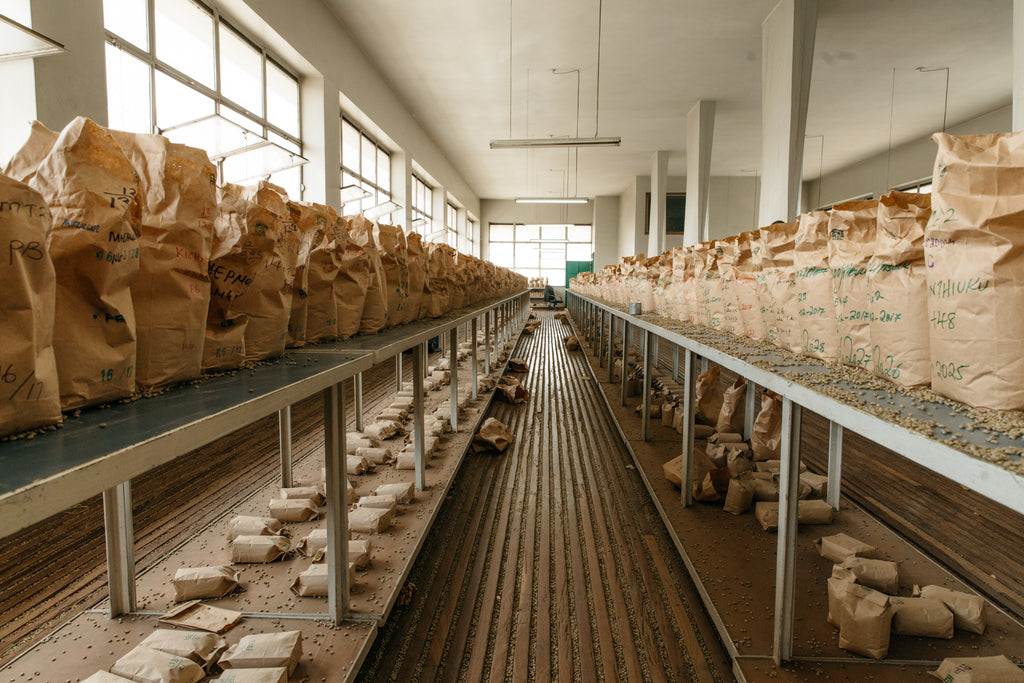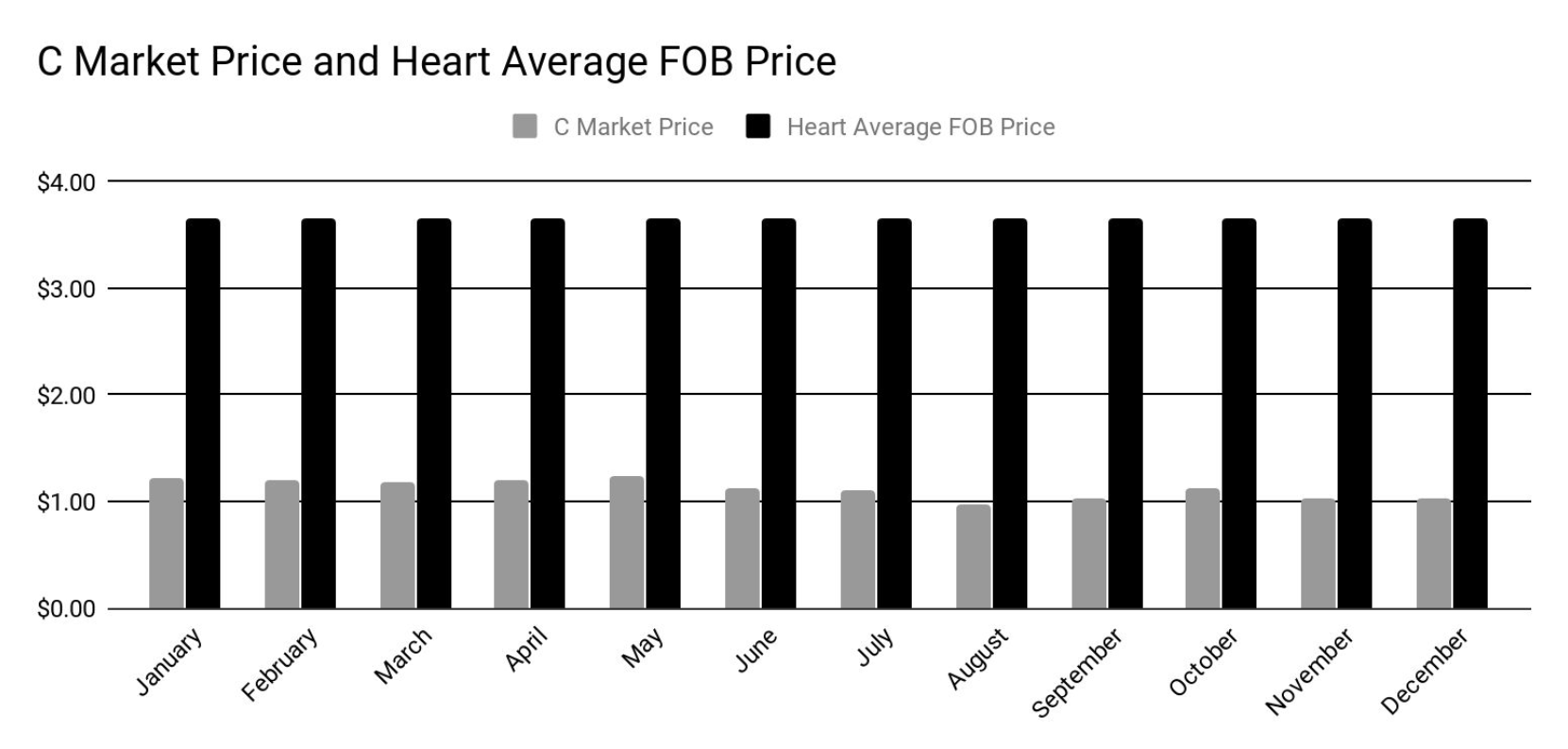2018
heart transparency report

Cherry hopper Kiamaina, Kenya
As Heart approaches a decade of roasting coffee, we'd like to take this opportunity to better tell an important part of our story. Over the last ten years, we've worked directly with farmers in Kenya, Ethiopia, Colombia, Honduras, Mexico, Brazil, and Guatemala, and we'd like to share with the public our efforts to provide financial stability to producer farmers, as well as maintain healthy working relationships built on trust and respect. We pursue partnerships of longevity and mutual sustainability.

Ramon Hernandez, Santa Barbara, Honduras
2018 saw our company expand our green coffee sourcing team to further improve the quality of our direct relationships. It has allowed us to keep in detailed communication with our producer partners throughout the coffee harvest and to focus more energy on long term goals and projects. These efforts, paired with structuring our menu around larger purchases from a smaller pool of farms, helped us to maximize our financial impact in 2018.

Washing channel Gachuiro, Kenya
A smaller portion of our coffees are purchased through importer partners who we trust to work ethically with farmers. The prices for these coffees are set by the importers. Their coffees make up a meaningful part of our menu, as the quantities Heart needs fluctuate seasonally, and sometimes coffees we book at origin will move between our single origin menu and our Stereo blend. As the company has grown we’ve minimized our need for importer-booked coffees, and we will continue to work towards making 100% direct purchases.

Coffee Mill, Addis Ababa, Ethiopia
In coffee purchasing, the term FOB is often thrown around. FOB stands for “Free On Board”, and refers to the prices negotiated by us and our producer partners in-country, and includes what is to be paid for all services up until it is on the ship and headed to the USA. There are other costs accrued along the way for services like milling, shipping, and packaging in the country of origin. These costs are taken into account when negotiating prices for coffees with our producer and export partners.

Sample room, Nairobi Coffee Exchange, Kenya
The cost of coffee on a global level is dictated by the Commodity Market, or C Market, which fluctuates based on supply and demand. Due to market volatility, in general we ignore this number when doing business with our producer partners.

In 2018, while the market price for commodity coffee topped out at $1.24 per pound, the average price per pound FOB we paid was $3.65. A complete list of FOB prices we paid for individual lots is below.


